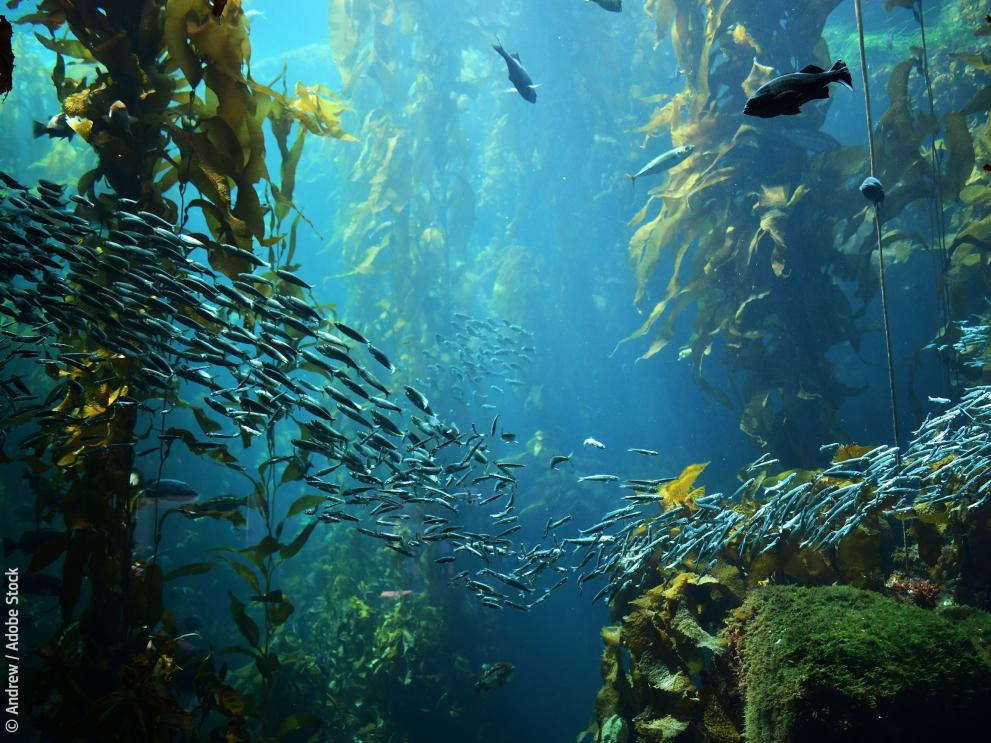
The 5th Intergovernmental Conference negotiating the UN High Seas Biodiversity Treaty* suspended its session with significant progress made in almost all chapters, bringing the international community closer than ever to the Treaty it needs for protecting the ocean, tackling environmental degradation, fighting climate change, and preventing biodiversity loss, including through establishing large-scale marine protected areas.
European Commissioner for Environment, Oceans and Fisheries Virginijus Sinkevičius said:
An agreement is in sight. I am confident that we will not have to wait much longer for the negotiations to be successfully concluded. The EU remains focused on achieving a universal, inclusive, and enforceable agreement that will contribute to protecting marine biodiversity and ecosystems, absorbing large amounts of global carbon emissions and strengthening the resilience of our ocean. The international community needs this treaty more than ever. It would be an unprecedented step forward to address the dual crisis of biodiversity loss and climate change.
Until the last moment, the EU, leading a High Ambition Coalition of 50 countries, has pushed tirelessly to secure significant progress. It has worked as a reliable and responsible partner with all geographical groups and countries, leading the negotiations to bridge the remaining divides on all essential elements of the future Treaty.
This has resulted in progress these past two weeks that had not been seen before in this negotiation. The process for establishing and managing marine protected areas in the high seas has been clarified. The EU has tabled an innovative mechanism for sharing the benefits arising from marine genetic resources in a fair and equitable manner, and for enhancing marine scientific cooperation. The process and requirements for environmental impact assessments for future activities in the high seas has been elaborated. The modalities for developing capacities on ocean management have been laid down. Crucial progress has also been made on the institutional framework of the agreement, including an information exchange mechanism to foster cooperation and coordination between the Parties, and a committee on capacity building and the transfer of marine technology to strengthen support to developing countries.
The High Seas treaty is within reach and will be instrumental to achieve the ambitious goal of protecting at least 30% of the world's ocean. The EU also promotes this important goal in the discussions on the new post-2020 Global Biodiversity Framework in the framework of the Convention on Biological Diversity.
Despite all efforts, the international community has failed to reach the finish line, with multilateral efforts often held back by Russia and China determined to derail the negotiations.
The Intergovernmental Conference should resume in the coming months, this time based on much more advanced work, with the objective of finalising the much-needed and long-awaited treaty.
*Implementing agreement under the United Convention on the Law of the Sea on the conservation and sustainable use of marine biological diversity of areas beyond national jurisdiction (or “BBNJ” for short)
Background
Covering nearly two-thirds of the world’s ocean, areas beyond national jurisdiction comprise the high seas and the Area (the seabed beyond national jurisdiction). They contain marine resources and biodiversity of ecological and socio-economic importance. However, they are under mounting pressure from pollution (including noise), overexploitation, climate change and decreasing biodiversity.
Faced with these challenges and in view of future increasing demands for marine resources for food, medication and energy for example, an overwhelming majority of States agreed on the need for a new Implementing Agreement under the United Nations Convention on the Law of the Sea (UNCLOS) to protect and sustainably use the resources of these areas. The Agreement would further implement existing principles in UNCLOS to achieve a more holistic management of activities carried out in the high seas. These principles include the duty to cooperate, the duty to protect and preserve the marine environment and the duty to undertake prior impact assessment of activities.
This Implementing Agreement would be the third of its kind following specific agreements on seabed mining in 1994 and management of straddling and highly migratory fish stocks in 1995. The new agreement would bring UNCLOS up to speed with the developments and challenges that have occurred since it was developed thirty years ago and would further support the achievement of the Agenda 2030 for Sustainable Development, in particular Sustainable Development Goal 14 (“Life Below Water”).
Details
- Publication date
- 27 August 2022
- Author
- Directorate-General for Maritime Affairs and Fisheries
